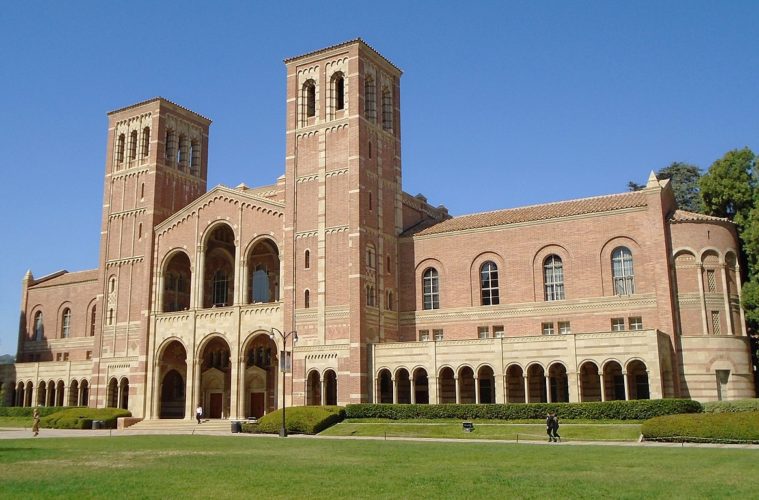The Bureau of Cannabis Control announced late last week that it has awarded $30 million in public university research grant funding to universities across California to study the state’s legal cannabis market.
The BCC first put out the call for research proposals in late September. While Prop. 64 mandates the funding, the revenue and tax code is where you’ll have to look for what kinds of cannabis-related research actually qualifies for the money.
The tax code notes many topics, starting with the variety of ways cannabis impacts public health, how much it costs society, and how wider access impacts the way people interact with other drugs. Health was also a big part of the next area open for research, finding the most effective treatments for people who may have lost the ability to self-regulate.
Next is the public safety issues related to cannabis use. The tax code notes that kind of research can include studying the effectiveness of the packaging and labeling requirements, advertising and marketing restrictions. The public safety-focused research could even look at how varying potency levels of cannabis and cannabis products impact safety.
Cannabis use rates, diagnosis rates of cannabis-related substance use disorders and protecting the environment are the last topics of a wide scope where funding is available. From there it starts to get a bit more niche, with topics including comparing product prices to the illicit market, preventing monopolies, and whether the agencies tasked with the implementation of Prop. 64 are doing a good job.
There is also a push for data research around geographic location, structure and function of licensed cannabis businesses, and demographic data, including race, ethnicity and gender, of license holders.
Finally, research around the impact Prop. 64 had on the state’s criminal justice system is also on the table, especially looking at probation-based treatments and the frequency of up-charging illegal possession of cannabis or cannabis products to a more serious offense.
The $30 million for research funding is three times what is mandated. The BCC confirmed that fact to L.A. Weekly via email. We always knew folks would be keeping an eye on the marketplace and the way its development hopefully segues with various aspects of everyday life, but good on the state for going above and beyond the call.
“The research conducted through these public university grants will provide critical information for evaluating our legal cannabis system and its impacts,” Bureau of Cannabis Control Chief Lori Ajax said in last week’s announcement. “This research will be a valuable tool to inform future cannabis policy in California.”
Applicants had no problem with the quick turnaround time on applications. People ponder on the kind of research they can do all year long and know the money is now going to be available on an annual basis. This led to the BCC receiving more than 100 applications for funding of up to $2 million per project.
UCLA’s local research into the world’s largest legal cannabis marketplace was one of the biggest winners in this round of funding. In total, six projects at UCLA received funding just short of $6 million dollars, this accounts for almost 20 percent of the money distributed. Two of the UCLA projects fall in the top 10 for the total amount they were funded.
The only project to receive the maximum $2 million is a comprehensive analysis of developmental cannabis exposure on the brain, immune and sensory systems that will take place at UCSF. But a UC Santa Barbara study on Surface Water Emissions from Cannabis Cultivation Sites fell $800 short of the limit. Local research capped off the top three with CSU Dominguez Hills receiving $1.8 million to review the cannabis industry in South Bay.
UC Berkley had the most projects funded at seven. One of the factors was the lower cost of the projects they wanted to work on. Six of the seven come in at under $500,000.
We asked the state if it was looking to streamline the process with these institutions that received money for multiple projects. Is it more expensive to break it down piece by piece as opposed to giving a UCLA or UC Berkeley a lump sum to maximize all the projects when possible? The BCC told us as it relates to what will happen with future research, it’s tough to say with certainty. The BCC is finalizing agreements with the award recipients, and then they’ll see how things go from there.
Local Research Funded
UC Los Angeles – $1,429,001
Impact of Cannabis Potency on The Properties, Composition, and Toxicity of Inhaled and Second-Hand Smoke
UC Irvine – $1,351,556
Exploring Cannabis Policies and Practices That Influence Adolescent Use: Evolution of Local Cannabis Law, Products, Sales, and Marketing
UC Los Angeles – $1,082,815
Assessing the Feasibility and Consequences of Implementing a Cannabis Potency Tax in California
UC Los Angeles – $1,048,857
Study of Employment Conditions and Equity in California’s Cannabis Industry
UC Los Angeles – $896,794
Assessing the Impact of Proposition 64 on Cannabis Use, Maladaptive Cannabis Use, Cannabis Use Disorder Treatment, and Public Health
UC Los Angeles – $781,707
A Demographic Analysis of the California Licensed Cannabis Industry and Consumer Market
UC Los Angeles – $758,517
The Impact of Cannabis Marketing on California’s Youth: Neuro-Behavioral Studies for Informing Policy
Advertising disclosure: We may receive compensation for some of the links in our stories. Thank you for supporting LA Weekly and our advertisers.

